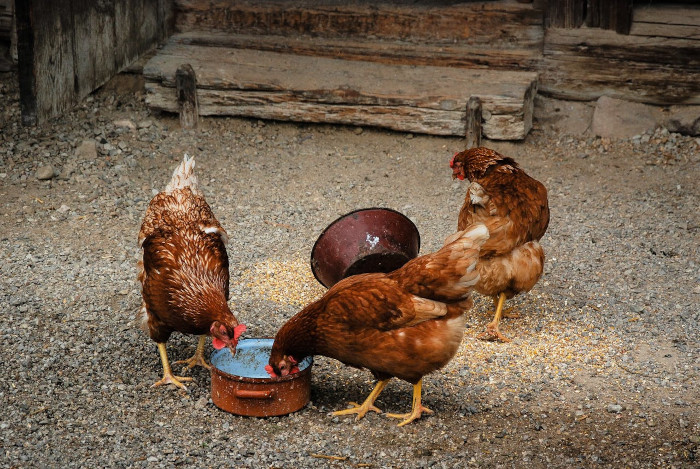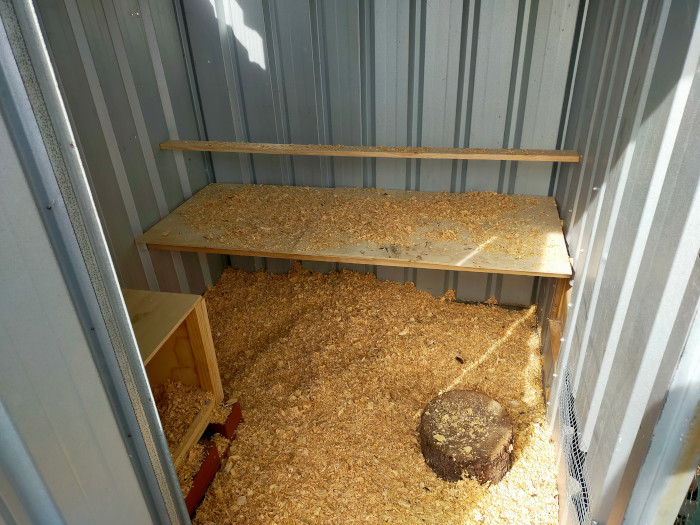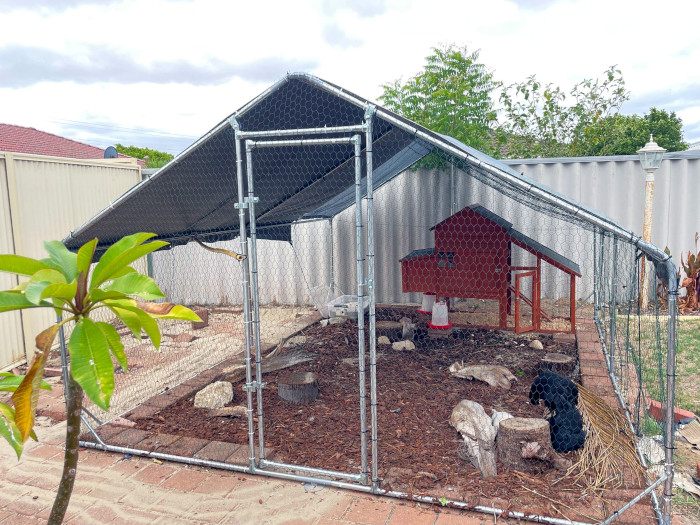For most of us chicken keepers, it’s all about those delicious eggs. Chickens can be costly to start with—the housing, feed, and all the stuff you need to keep them healthy. So it can be a bit annoying when, after all the effort, they suddenly stop laying.
In my experience with keeping chickens, this pause in egg production is often just a temporary problem. Today, I’ll talk about some common reasons chickens stop laying eggs and what you can do to get them to start laying again. If you’re wondering what to do when your chickens stop laying eggs, read on for some practical tips and insights.
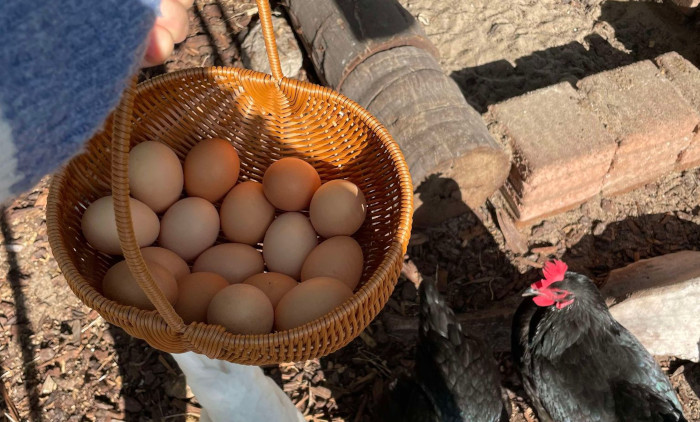
Why Chickens Stop Laying Eggs
Many chickens wont lay everyday, they tend to have their own unique laying patterns and timings that varies depending on the breed and the individual chicken. As chickens get older their egg production will decrease until it stops completely. If a chicken stops laying while she is young there are a few things it could be:
Lack of Nutrition
A chicken’s diet plays an important role in their egg production, and they may stop laying eggs if they lack proper nutrition. Protein and calcium are the main components of eggs, so a deficiency in either will likely reduce egg production.
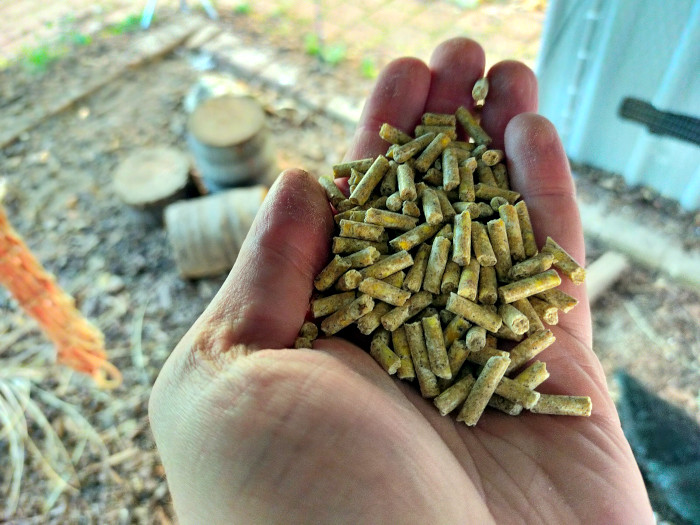
Chicken feeds for laying hens will usually cover these bases, but you should aim for a feed with at least 18% protein. While a 16% protein feed might be enough if the chickens get supplemental protein from foraging, I prefer to guarantee this by providing a higher percentage protein feed. This is especially important during moulting or when chickens have limited access to forage.
While many feeds include a source of calcium, an easy way to add supplemental calcium is to provide crushed oyster shells, crushed eggshells, or something similar. You can usually get these from the same stores you get chicken feed from.

Not Enough Light
Chickens need at least 12 hours of light a day to regulate their laying cycle. In certain climates and during winter, egg production may decrease due to shorter, darker days. You can provide an alternative light source, such as a low-wattage bulb in the coop, to turn on in the morning or early evening to help promote egg laying during these months.

This works the same way for people. When we have lights on in the evening, it tricks our brain into thinking it’s still daytime, affecting our hormones and sleep cycle. For chickens, the extra light helps regulate their laying cycle, but they still need proper darkness at night to maintain a natural rhythm.
Stress
Stress can significantly reduce a chickens egg production as well as their overall health.. Common sources of stress include predator attacks, changes in flock dynamics (such as new members), or relocation. If chickens experience these stresses, they may stop laying eggs. To help prevent this, ensure their coop and fence are secure to keep predators out.
Chickens also need a safe place to retreat when needed, whether that’s in the coop or under some other shelter, to shield them from both predators and aggressive flock mates.

Missing feathers is common sign of stress. So if egg production is lower and they are missing feathers, stress is likely a factor. Their egg laying will return to normal once the source of stress is removed.
Moulting
Chickens lose their feathers and grow new ones at least once a year. The whole process lasts about 6-12 weeks usually in summer or in autumn. During this time energy and protein goes towards growing new feathers rather than egg production. When the process is over chickens will resume laying eggs at normal levels again. During this time you will probably find a lot more feather than usually floating around the place.
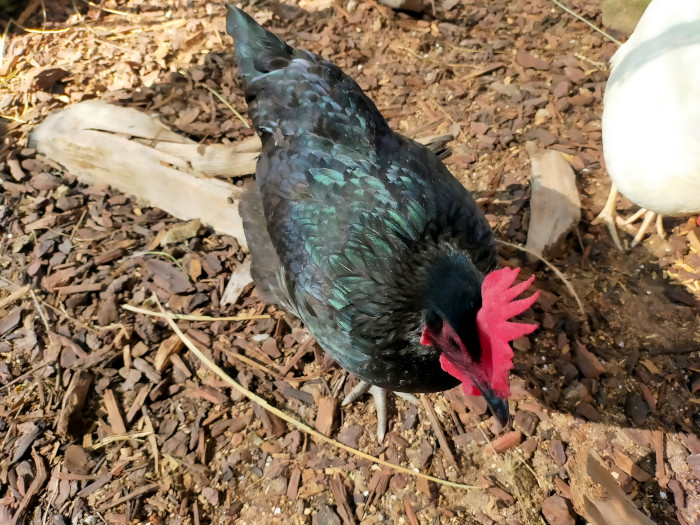
Health Problems
Chickens may stop laying if they are sick. Common illnesses include coccidiosis, colds, and other respiratory problems. Parasites, such as mites and ticks, are also common in coops, especially those made of wood.
Another issue chickens sometimes experience is egg binding, which occurs when an egg becomes stuck inside them. You can tell if a chicken is egg-bound if it shows signs of straining, vocalizing more than usual, or has a swollen abdomen. To help the chicken pass the egg, you can gently massage the area and provide warm, moist conditions.
If any of these issues persist, then it’s best to let a vet take a look and provide the treatment necessary.
In general, you can prevent many health problems by keeping their coop and run clean and well-ventilated. I recommend checking for mites and dusting down the coop every few months with a parasite dust, depending on how many parasites you find in your area. Also, make sure the chickens have access to sand or soil to bathe in, which is a good way for chickens to rid themselves of parasites and keep them happy and healthy.
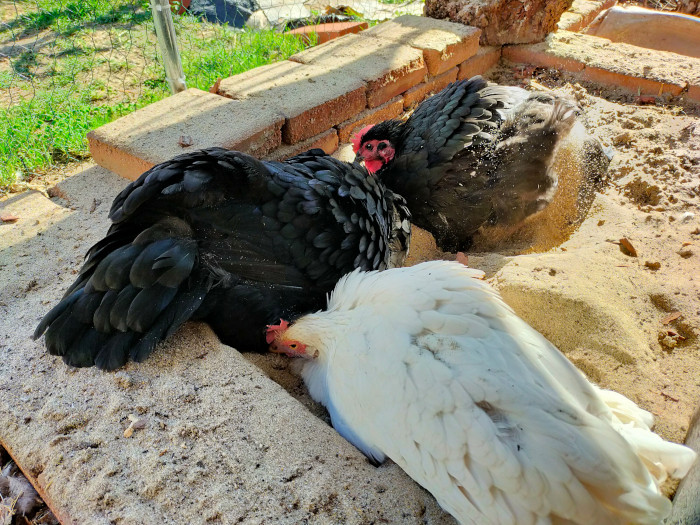
Conclusion
There are many reasons a chicken stops laying eggs but most are temporary and easily fixed. By managing nutrition, light, stress, moulting, and potential health issues, you can encourage your chickens to resume their egg production. Regular monitoring and a good setup will ensure your flock remains happy and healthy, allowing you to enjoy those delicious eggs for years to come.
